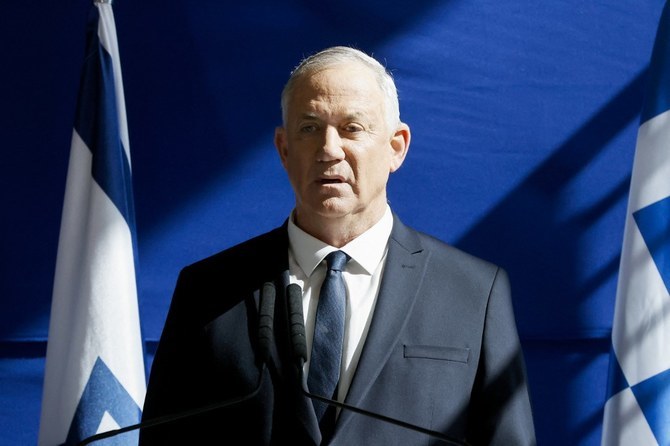
The Israeli politician and former military chief Benny Gantz has followed through on a threat to resign from Benjamin Netanyahu’s emergency war cabinet, leaving the prime minister more reliant than ever on far-right elements of his coalition government.
Gantz, a major Netanyahu rival, former defence minister and leader of the centre-right National Unity party, joined the three-man war cabinet as a minister without portfolio in the aftermath of Hamas’s 7 October attack, a move he said was for the sake of the country’s unity.
But as Israel’s war effort in Gaza dragged on, disagreements over strategy and how best to bring the 250 Israeli hostages home spilled into the open, culminating in Gantz accusing the prime minister of pushing strategic considerations such as a hostage deal aside for his own political survival. Last month, he gave Netanyahu an ultimatum of 8 June to present concrete “day after” plans for the Gaza Strip.
Gantz delayed his resignation speech by a day after the unexpected rescue of four Israeli hostages in an operation that the health ministry in Gaza said killed 274 people and injured another 696. The withdrawal of his party also means Gadi Eisenkot, an Israel Defense Forces (IDF) general and war cabinet observer, and the minister without portfolio, Chili Tropper, are also stepping down.
“Netanyahu is preventing us from progressing towards a true victory,” Gantz said in a televised address on Sunday night. “For this reason we are leaving the emergency government today, with a heavy heart, yet wholeheartedly.”
Gantz also called on Netanyahu to set a date for elections, adding: “Do not let our nation tear apart.”
The move does not immediately pose a threat to Netanyahu, as the prime minister still controls a majority coalition in parliament. It does, however, affect the Israeli government’s respectability on the international stage; centrist Gantz is well liked in Washington, where he was seen as a useful brake on Netanyahu, and his absence means the prime minister’s far-right allies are likely to now have more sway over the trajectory of the war in Gaza and the growing threat of war with Hezbollah in Lebanon.
Bezalel Smotrich, the far-right finance minister, slammed Gantz, saying “there is no less stately act than resigning from a government in time of war” as “the kidnapped are still dying in the Hamas tunnels”, and the extremist national security minister, Itamar Ben-Gvir, has already asked Netanyahu for Gantz’s seat on the war cabinet. Both ministers have repeatedly threatened to withdraw from the coalition if Israel makes any concessions to Hamas in a hostage and ceasefire deal.
Netanyahu took to X in the wake of Gantz’s announcement, saying that this is the time to “join forces” rather than quit.
Israel’s opposition leader, Yair Lapid, said: “Gantz and Eisenkot’s decision to leave the failed government is important and correct.
“The time has come to replace this extreme and reckless government with a sane government that will lead to the return of security to the citizens of Israel, to the return of the abducted, to the restoration of Israel’s economy and international status,” he added.
Netanyahu and his defence minister, Yoav Gallant, are the only two remaining members of the war cabinet, and also often do not see eye to eye. The prime minister is now said to be considering shuttering the war cabinet and reverting to a former model in which security issues are first discussed in a limited forum before being presented to regular cabinet meetings, in which he seeks ministerial approval.
The longtime prime minister, facing corruption charges as well as scrutiny over the security failures that led to 7 October, is widely believed to see staying in office as his best chance of escaping prosecution. He also needs to parry an internal challenge from the two ultra-Orthodox parties in his coalition over the issue of military conscription.
Like many top Israeli commanders, Gantz, 65, entered politics in 2018 after a career in the military, announcing a new party with the explicit goal of ending Netanyahu’s grip on Israeli politics. He had been viewed as a favourite to lead a new coalition in the event that the government collapses and early elections are called, although he has slipped in the polls in recent months.
His National Union party submitted a bill last week to dissolve parliament and hold early elections.











